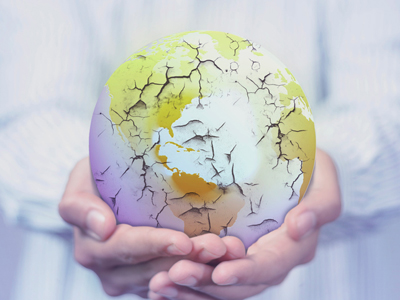
Ask the AI Tutor
Need help with Reducing the Damage Caused by Earthquakes? Ask our AI Tutor!
AI Tutor - Lucy
Connecting with Tutor...
Please wait while we establish connection

See if you can get ten out of ten in this quiz.
Reducing the Damage Caused by Earthquakes
Earthquakes cannot be stopped, but good planning, strict building design, and early warning systems can greatly reduce damage, injuries, and loss of life in vulnerable areas.
1 .
Which of the following is a long-term impact of a large earthquake.
People may be killed or injured
Disease may spread
Gas supply pipes in the ground may break creating a fire hazard
Landslides may destroy forests and settlements
The other impacts happen during or within hours of the earthquake occuring, disease takes a lot longer to arise but could be more deadly than the earthquake itself, particularly in a LEDC
2 .
One way in which the damage caused by an earthquake is through monitoring, this is carried out by:
volcanologists
speleologists
pyrologists
seismologists
Words starting with seism- indicate that they are something to do with earthquakes
3 .
MEDCs can afford to monitor earthquakes more closely than LEDCs but which of the following is an instrument that they would use?
Siesmologist
Seismologue
Siesmometer
Seismic balance
Seismometers are so sensitive, they can detect earthquakes that occur on the opposite side of the world
4 .
The intensity of an earthquake is measured using which scale?
Richter only
Mercalli only
Both Richter and Mercalli
Neither Richter nor Mercalli
The Mercalli scale is based on observations of the effects of an earthquake whilst the Richter scale measures the energy by looking at the seismic waves. The Mercalli scale is not considered to be scientific as it relies on the observations of witnesses
5 .
The focus and epicentre of an earthquake are:
where the greatest damage to property occurs
the safest places to be during an earthquake
what cause tsunamis to occur
the place where an earthquake occurs and the point on the surface directly above where the earthquake happens
Make sure that you revise the meaning of all of the words related to earthquakes
6 .
Many factors affect the impact of an earthquake. Which of the following is the most likely to be less of a problem in a MEDC when compared with a LEDC?
Distance from the epicentre
The severity of the earthquake
Time of day at which the earthquake occurs
Communications infrastructure
Communications in a MEDC are generally better developed and more robust than in a LEDC
7 .
Which of the following is a primary effect of an earthquake?
A block of flats collapsing
A block of flats bursting into flame
Flooding in a block of flats
People from the block of flats catching diseases from broken sewers
Fire, flooding and the escape of sewage are not caused directly by the earthquake. It can sometimes be quite difficult to understand the difference between primary and secondary effects
8 .
Which of the following is a secondary economic effect of an earthquake?
Looting
Shopkeepers killed by the earthquake
Shops and other business premises collapse because of the earthquake
Shops and businesses have no water supply because the water pipes have been broken by the earthquake
Option two is a social impact, option three is a primary environmental impact and the fourth option is regarded as a social impact since the lack of a water supply affects people. Looting is stealing and therefore damages the economic side of the business
9 .
In MEDCs, educating people what to do during an earthquake saves a lot of lives. Why is this less successful in LEDCs?
Poorly developed communications
Lower literacy
Lack of money to fund materials and people to get the information to the population
All of the above
The successful reduction of the impact of any natural hazard comes down to money
10 .
Which of the following is NOT a method that is used in the construction of earthquake proof buildings.
Adding X-shaped steel bracing to the structure of the building
Steel cables attached to the top corners of the building and fixed to anchor points in the ground
Using shatterproof glass in windows and doors
Building large structures as separate sections that can move independently
Anchoring using cables is only done to small buildings in windy places to stop them being blown over
**Unlimited Quizzes Await You! 🚀**
Hey there, quiz champ! 🌟 You've already tackled today's free questions.
Ready for more?
Ready for more?
🔓 Unlock UNLIMITED Quizzes and challenge yourself every day. But that's
not all...
not all...
🔥 As a Subscriber you can join our thrilling "Daily Streak" against other
quizzers. Try to win a coveted spot on our Hall of Fame Page.
quizzers. Try to win a coveted spot on our Hall of Fame Page.
Don't miss out! Join us now and keep the fun rolling. 🎉
**Unlimited Quizzes Await You! 🚀**
Hey there, quiz champ! 🌟 You've already tackled today's free questions. Ready for more?
🔓 Unlock UNLIMITED Quizzes and challenge yourself every day. But that's not all...
🔥 As a Subscriber you can join our thrilling "Daily Streak" against other quizzers. Try to win a coveted spot on our Hall of Fame Page.
Don't miss out! Join us now and keep the fun rolling. 🎉






